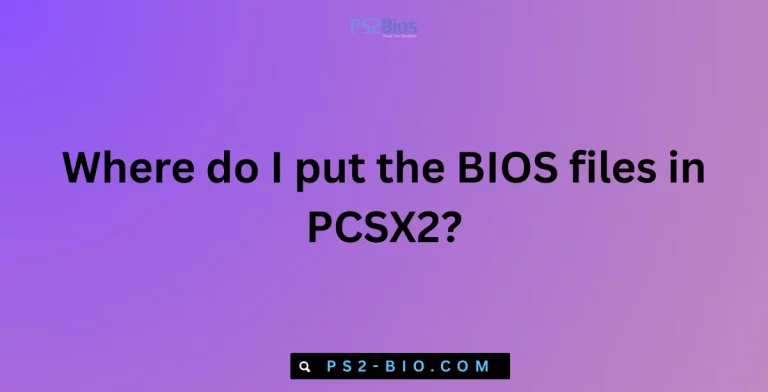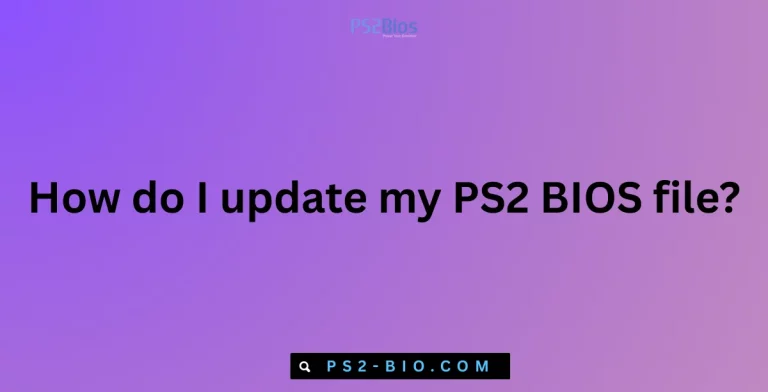Region-Free BIOS: Can One BIOS Work Globally?
Have you ever wondered why a PlayStation or computer BIOS works in one region but not another? The term region-free BIOS raises questions about global compatibility, licensing rules, and whether one BIOS can truly power devices across different countries without restrictions.

What Is a BIOS?
The BIOS (Basic Input/Output System) is the fundamental firmware that initializes hardware when a device powers on. It ensures components like the CPU, RAM, and storage communicate correctly before the operating system loads.
In PCs, BIOS (or its modern replacement, UEFI) also provides configuration options for hardware settings. In gaming consoles like the PlayStation 2 (PS2), the BIOS contains region-locked data that determines where the system can run games or discs.
This makes BIOS not just technical but also tied to licensing, intellectual property, and regional restrictions.
Region Locking Explained
Most electronics manufacturers implement region locking to control software licensing, pricing, and media distribution. Examples include:
- DVD and Blu-ray discs → Divided into regional codes (e.g., Region 1 for North America, Region 2 for Europe).
- Game consoles → PlayStation 2 and Nintendo systems often restrict discs to their original region.
- Software licensing → Certain BIOS files are coded with region identifiers.
The reason is business-driven. By separating regions, companies enforce pricing differences and comply with local copyright laws. For instance, a PS2 game purchased in Japan may not run on a North American PS2 due to region-specific BIOS data.
What Is a Region-Free BIOS?
A region-free BIOS is a modified or specially created BIOS that removes region restrictions. It allows hardware or software designed for one region to work globally.
In theory, a region-free BIOS could:
- Run games or discs from any region.
- Eliminate compatibility issues across international hardware.
- Simplify use for travelers, collectors, and emulation enthusiasts.
However, implementing a universal BIOS is not always straightforward. Legal issues, hardware differences, and licensing agreements often prevent a single BIOS from functioning globally without modification.
Can One BIOS Work Globally?
The answer depends on the context—PC BIOS vs console BIOS.
For PCs
A modern UEFI/BIOS for computers is generally region-free. PCs do not impose region locks at the BIOS level. Instead, restrictions appear in software, such as DVD player applications enforcing movie region codes.
So, a single BIOS version on a PC motherboard typically works worldwide, provided the hardware supports it.
For Gaming Consoles
Console BIOS files (PS2, PS3, PSP, etc.) are not region-free. They are tied to specific areas like NTSC-U/C (North America), NTSC-J (Japan), or PAL (Europe/Australia).
For example:
- PS2 BIOS from Japan will not boot a U.S. game without modification.
- PlayStation Portable (PSP) and some later consoles reduced BIOS-based region locking but still enforced restrictions in software.
Thus, one console BIOS cannot globally replace all others without modifications, hacks, or emulators.
Region-Free BIOS in Emulation
In emulation, region-free BIOS becomes especially important. Emulators like PCSX2 (PS2) or PPSSPP (PSP) require BIOS dumps to replicate the console environment.
- A region-specific BIOS only runs compatible games.
- A region-free BIOS or patched file allows loading games from any region, improving compatibility.
For example, PCSX2 often requires multiple BIOS files to cover different regions. Some developers have created region-free versions to simplify this process.
Still, users must legally dump BIOS files from their own consoles to remain compliant with copyright law. Downloading pre-patched BIOS files online usually violates intellectual property rights.
Legal and Ethical Issues
The idea of a region-free BIOS raises legal concerns:
- Copyright law → BIOS firmware is proprietary. Distribution or downloading without permission is illegal in most countries.
- Licensing agreements → Console makers like Sony and Nintendo implement region coding to comply with international laws and contracts.
- Emulation rules → Using your own legally dumped BIOS is permitted, but sharing or downloading is not.
Even though a region-free BIOS improves accessibility, bypassing restrictions may breach licensing laws. For instance, using a modified PS2 BIOS to run games from other regions could technically violate Sony’s licensing agreements.
Technical Challenges of a Global BIOS
Designing one BIOS that works worldwide faces technical obstacles:
- Video Standards – Older consoles used NTSC (60Hz) in Japan/USA and PAL (50Hz) in Europe. A single BIOS would need to support both refresh rates.
- Hardware Differences – Consoles sometimes shipped with small hardware changes across regions. A global BIOS may fail to detect or configure all models.
- Encryption Keys – Some BIOS contain cryptographic data specific to regional game discs. A universal version would require all keys.
- Firmware Updates – Manufacturers release updates per region. A unified BIOS would need synchronized support.
These factors explain why most official BIOS versions remain locked to a specific area.
Benefits of a Region-Free BIOS
Despite challenges, a region-free BIOS offers clear advantages:
- Global Game Access → Play games or media regardless of country of origin.
- Preservation → Helps archivists and historians preserve games without worrying about region barriers.
- Emulation Simplification → One BIOS file instead of multiple region-specific versions.
- User Convenience → No need to maintain multiple consoles or swap BIOS files for compatibility.
These benefits explain why many enthusiasts seek region-free modifications even if companies don’t officially provide them.
Risks of Using Region-Free BIOS
While appealing, region-free BIOS use carries risks:
- Legal Issues → Downloading or sharing modified BIOS files can violate copyright law.
- Stability Problems → Modified BIOS files may crash or fail on certain games.
- Security Risks → Unofficial BIOS downloads from untrusted sites may include malware.
- Warranty Void → Consoles modified with region-free BIOS lose manufacturer support.
Users must weigh these risks before attempting modifications.
Region-Free Alternatives
Even without a region-free BIOS, there are alternative solutions:
- Modchips – Hardware chips installed in consoles that bypass region locks.
- Swap Discs/Software Hacks – Special boot discs or firmware exploits load out-of-region games.
- Emulators – Programs like PCSX2 and Dolphin emulate consoles and offer region flexibility.
- Modern Systems – Newer consoles like the PlayStation 4 and 5 are mostly region-free for games (though not for DVDs/Blu-rays).
This shows that while BIOS plays a role, region-free gaming is also achieved through other methods.
Future of Region-Free BIOS
The gaming industry is moving toward region-free ecosystems. For example, the Nintendo Switch allows users to play games purchased worldwide. Similarly, PlayStation 5 supports global game discs, though media playback still has regional restrictions.
This trend suggests that future consoles may no longer rely on region-specific BIOS at all. Instead, restrictions could remain only at the software licensing level.
Conclusion
So, can one BIOS work globally? The answer depends:
- PC BIOS → Already region-free and works worldwide.
- Console BIOS → Still locked by region, but region-free versions exist through modification or emulation.
A true region-free BIOS offers global compatibility, simpler emulation, and preservation benefits. But legal and technical barriers make it unlikely as an official standard. For now, enthusiasts rely on modified BIOS files, emulators, or alternative tools to achieve worldwide compatibility.






